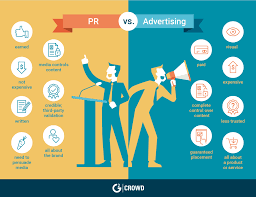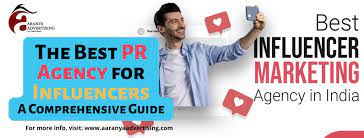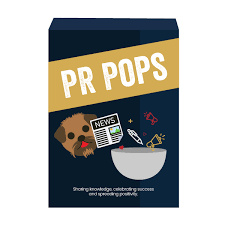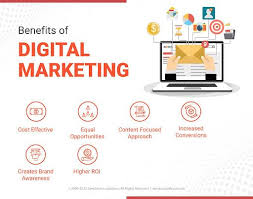The Role of a PR Professional in Building and Maintaining Reputation
In today’s fast-paced and interconnected world, reputation is everything. Whether it’s a large corporation, a non-profit organization, or an individual, maintaining a positive image is crucial for success. This is where the expertise of a PR (Public Relations) professional comes into play.
A PR professional is responsible for managing and shaping the public perception of an organization or individual. They are skilled communicators who strategically craft messages and implement campaigns to build and maintain a positive reputation.
One of the key roles of a PR professional is to act as a bridge between their client and the public. They serve as the spokesperson, ensuring that all communication aligns with the desired image and objectives. By effectively conveying messages through various channels such as media interviews, press releases, social media platforms, and events, they help shape public opinion.
Building strong relationships with media outlets is another crucial aspect of a PR professional’s role. They work closely with journalists to generate positive coverage for their clients. This involves identifying newsworthy angles, pitching stories, organizing press conferences, and managing media inquiries. By securing positive media exposure, they can enhance their client’s reputation and credibility.
In addition to proactive communication efforts, PR professionals also play a vital role in managing crisis situations. When faced with negative events or controversies that could damage their client’s reputation, they step in to develop crisis communication strategies. This involves swift response planning, providing accurate information to the public, addressing concerns effectively, and mitigating any potential damage.
PR professionals are skilled at monitoring public sentiment through media monitoring tools and social listening techniques. By staying tuned in to conversations happening online and offline about their client or industry trends, they can identify potential issues early on and take necessary actions to protect their client’s reputation.
Furthermore, PR professionals are adept at building thought leadership for their clients. They position them as industry experts by securing speaking engagements, writing opinion pieces, and facilitating networking opportunities. This helps establish credibility and trust, enhancing the client’s reputation within their field.
In summary, a PR professional plays a vital role in building and maintaining the reputation of an organization or individual. Through strategic communication, media relations, crisis management, and thought leadership initiatives, they shape public perception and ensure that their clients are viewed positively. Their expertise is essential in navigating the complex world of public opinion and helping their clients achieve long-term success.
9 Essential Tips for PR Professionals: Mastering Networking, Staying Informed, and Driving Success
- Develop a strong network of contacts – Stay connected with key industry players, media outlets and other public relations professionals.
- Stay up to date on current events – Understand the news cycle, be aware of changes in the industry and stay informed about relevant topics and trends.
- Have a good understanding of your target audience – Know who you are targeting with your PR campaigns and tailor your messaging accordingly.
- Utilise digital marketing tools – Use social media platforms such as Twitter, Instagram, Facebook and LinkedIn to get your message out there quickly and effectively.
- Be creative – Think outside the box when it comes to promoting yourself or your clients’ products or services – creativity is key when it comes to PR success!
- Know how to measure success – Keep track of analytics from press releases, campaigns etc so that you can accurately measure the success of each activity/strategy you implement in order to make improvements where necessary
- Monitor & respond quickly – Monitor online conversations about yourself or your clients’ brands so that you can respond quickly if any negative comments arise; this will help maintain a positive public image for all parties involved
- Be proactive – Proactively seek out opportunities for publicity; think outside the box when it comes to ways in which you can spread awareness about what you do/your client does
- Write well – Writing is one of the most important skills for any PR professional; ensure that all written content is clear, concise and engaging
Developing a Strong Network of Contacts: A Key Tip for PR Professionals
In the dynamic field of public relations, building and maintaining relationships is crucial for success. One valuable tip for PR professionals is to develop a strong network of contacts. By staying connected with key industry players, media outlets, and other PR professionals, they can enhance their effectiveness and open doors to new opportunities.
Having a robust network allows PR professionals to stay informed about the latest industry trends, news, and developments. By cultivating relationships with key influencers and thought leaders in their field, they gain access to valuable insights and knowledge. This not only helps them stay ahead of the curve but also enables them to provide their clients with up-to-date information and strategic advice.
Maintaining connections with media outlets is another essential aspect of a PR professional’s network. By nurturing relationships with journalists, editors, and producers, they can increase the chances of securing media coverage for their clients. When they have established trust and rapport with media professionals, it becomes easier to pitch stories or arrange interviews. This direct line of communication can be invaluable in generating positive exposure for their clients.
Networking within the PR industry itself is equally important. Connecting with other PR professionals provides opportunities for collaboration, sharing best practices, and learning from each other’s experiences. It creates a supportive community where ideas can be exchanged and professional growth can thrive. Additionally, referrals from fellow PR professionals can lead to new clients or projects.
In today’s digital age, networking has expanded beyond traditional face-to-face interactions. Utilizing social media platforms such as LinkedIn or Twitter allows PR professionals to connect with industry peers globally. Engaging in online communities or participating in relevant discussions helps expand their network beyond geographical boundaries.
To develop a strong network of contacts as a PR professional, it’s important to be proactive in reaching out and nurturing relationships. Attend industry events, conferences or seminars where you can meet like-minded individuals face-to-face. Actively engage with contacts through social media, sharing relevant content and participating in conversations. Offer assistance or share resources when opportunities arise to build goodwill.
In conclusion, developing a strong network of contacts is a valuable tip for PR professionals. By staying connected with key industry players, media outlets, and fellow PR professionals, they can gain insights, secure media coverage, and foster professional growth. Networking is an ongoing process that requires effort and genuine engagement. When done effectively, it can significantly enhance a PR professional’s capabilities and contribute to their long-term success.
As a PR professional, staying up to date on current events is crucial for success in the ever-evolving world of communication. Understanding the news cycle, being aware of changes in the industry, and staying informed about relevant topics and trends are essential strategies to effectively navigate the PR landscape.
The news cycle moves at a rapid pace, with stories breaking and evolving within minutes. By staying informed about current events, PR professionals can identify opportunities to tie their clients’ messages into trending topics or breaking news. This allows them to pitch timely and relevant stories that capture media attention and generate positive coverage.
In addition to monitoring general news, it is equally important for PR professionals to stay updated on industry-specific developments. By keeping track of changes and advancements within their clients’ industries, they can position themselves as knowledgeable experts. This enables them to provide valuable insights, contribute thought leadership content, and secure opportunities for their clients to showcase their expertise.
Being well-informed about relevant topics and trends also helps PR professionals anticipate potential issues or challenges that may arise. By proactively addressing these issues through strategic communication plans, they can protect their clients’ reputation and mitigate any negative impact.
Furthermore, staying up to date on current events allows PR professionals to engage in meaningful conversations with journalists, influencers, and stakeholders. Being aware of trending topics enables them to contribute valuable perspectives and insights in media interviews or social media discussions. This not only enhances their clients’ visibility but also positions them as thought leaders within their respective industries.
To stay informed, PR professionals should make use of various resources such as reputable news outlets, industry publications, social media platforms, newsletters, podcasts, webinars, and networking events. They should actively seek out information that is relevant to their clients’ industries and target audiences.
In conclusion, staying up to date on current events is an essential tip for any PR professional. By understanding the news cycle, being aware of industry changes, and staying informed about relevant topics and trends, they can effectively navigate the PR landscape, seize opportunities, protect their clients’ reputation, and position themselves as trusted experts in their field.
Have a good understanding of your target audience – Know who you are targeting with your PR campaigns and tailor your messaging accordingly.
One of the key tips for any PR professional is to have a good understanding of their target audience. Knowing who you are targeting with your PR campaigns and tailoring your messaging accordingly is essential for success.
When it comes to effective communication, one size does not fit all. Different audiences have different needs, interests, and preferences. By taking the time to understand your target audience, you can create messages that resonate with them and capture their attention.
Start by conducting thorough research on your target audience. Understand their demographics, such as age, gender, location, and profession. Dive deeper into their psychographics – their values, beliefs, motivations, and behaviours. This will help you gain insights into what matters to them and how they perceive information.
Once you have a clear understanding of your target audience, tailor your messaging to meet their specific needs and interests. Craft messages that speak directly to them – using language that resonates with their values and addressing issues that are relevant to them.
Consider the channels through which your target audience receives information. Do they prefer traditional media outlets or are they more active on social media platforms? Adapt your communication strategy accordingly to reach them through the channels they engage with most.
It’s also important to remember that audiences can vary for different PR campaigns or initiatives. Take the time to define specific target audiences for each campaign and adjust your messaging accordingly.
By having a good understanding of your target audience and tailoring your messaging accordingly, you increase the chances of capturing their attention and effectively conveying your message. This targeted approach enhances the impact of your PR campaigns and helps build strong relationships with the right stakeholders.
In conclusion, as a PR professional, understanding your target audience is crucial for successful communication. By conducting research, gaining insights into their needs and preferences, and tailoring your messaging accordingly, you can create impactful PR campaigns that resonate with your intended audience. This strategic approach will ultimately contribute to building a positive reputation for your organization or client.
Utilise Digital Marketing Tools: Amplify Your PR Efforts
In today’s digital age, harnessing the power of social media platforms has become essential for PR professionals. These digital marketing tools, such as Twitter, Instagram, Facebook, and LinkedIn, provide an instantaneous and effective way to communicate your message to a wide audience.
Social media platforms offer PR professionals the opportunity to engage with their target audience directly. By creating compelling content and sharing it across these platforms, you can quickly disseminate information, news updates, and announcements. Whether it’s a product launch, event promotion, or thought leadership piece, social media allows you to reach a vast number of people in real-time.
Twitter is an excellent platform for concise and impactful messaging. With its character limit, you can craft punchy statements or share links to longer-form content. It’s also a great tool for engaging in conversations with industry influencers and journalists.
Instagram provides an avenue for visual storytelling. Through captivating images and videos, you can showcase your client’s brand personality and create an emotional connection with your audience. Utilize relevant hashtags and engage with followers to expand your reach further.
Facebook offers a vast user base and diverse targeting options through its advertising platform. This allows you to reach specific demographics or interests that align with your client’s target audience. You can also leverage Facebook Groups or Pages to foster community engagement and build brand loyalty.
LinkedIn is particularly valuable for B2B communications. It serves as a professional networking platform where you can share industry insights, thought leadership articles, and company updates. Engaging with relevant LinkedIn groups or participating in discussions positions your client as an expert in their field.
By utilising these digital marketing tools effectively, PR professionals can amplify their efforts significantly. However, it’s important to remember that each platform has its own unique dynamics and best practices. Tailor your content accordingly to resonate with the specific audience on each platform.
Moreover, monitoring social media conversations and engaging with followers is crucial. Responding to comments, addressing concerns, and fostering meaningful dialogue demonstrates your client’s commitment to customer satisfaction and builds a positive brand image.
In conclusion, incorporating social media platforms into your PR strategy is essential for reaching and engaging with your target audience effectively. By utilising digital marketing tools such as Twitter, Instagram, Facebook, and LinkedIn, you can quickly disseminate information, build brand loyalty, and position your client as a thought leader in their industry. Embrace the power of social media to enhance your PR efforts and achieve remarkable results.
Be Creative: Unleashing the Power of Creativity in PR
In the world of Public Relations (PR), standing out from the crowd is essential. With countless messages bombarding consumers every day, it’s crucial to find innovative ways to capture their attention. This is where creativity becomes a powerful tool for PR professionals.
Thinking outside the box and embracing creativity can make all the difference in achieving PR success. It’s about finding unique and memorable ways to promote yourself or your clients’ products or services. By breaking away from conventional methods, you can create a lasting impact and generate buzz.
Creativity allows PR professionals to develop fresh and compelling ideas that capture the imagination of their target audience. Whether it’s an attention-grabbing social media campaign, a captivating event, or an unconventional partnership, thinking creatively helps cut through the noise and leave a lasting impression.
In today’s digital age, where social media platforms dominate communication channels, being creative is even more critical. PR professionals must find new ways to engage audiences amidst the constant flow of content. By crafting captivating stories, creating visually appealing content, or leveraging emerging technologies, they can captivate their audience and drive engagement.
Creativity also plays a significant role in building brand identity. By infusing unique elements into campaigns or strategies, PR professionals can help their clients differentiate themselves from competitors. This distinctiveness helps create a strong brand image that resonates with consumers and builds loyalty over time.
Moreover, creativity enables PR professionals to adapt to changing trends and preferences. It allows them to explore new platforms and techniques that align with evolving consumer behaviours. By embracing innovation and staying ahead of the curve, they can remain relevant in an ever-changing PR landscape.
To foster creativity in PR, it’s essential to cultivate an environment that encourages brainstorming sessions and idea sharing. Collaboration among team members sparks inspiration and allows for diverse perspectives that lead to groundbreaking concepts.
Remember, creativity knows no boundaries – it can be applied to any aspect of PR. From crafting compelling press releases to designing eye-catching visuals, every opportunity is a chance to unleash your creative potential.
In conclusion, creativity is the key to PR success. By thinking outside the box and embracing innovative approaches, PR professionals can capture attention, build brand identity, and engage audiences on a deeper level. So, let your imagination soar and embrace the power of creativity in your PR endeavors.
Know how to measure success – Keep track of analytics from press releases, campaigns etc so that you can accurately measure the success of each activity/strategy you implement in order to make improvements where necessary
Measuring Success: The Key to Effective PR Strategies
In the world of Public Relations (PR), success isn’t just about implementing strategies and hoping for the best. It’s about knowing how to measure that success and using those insights to continually improve your efforts. One crucial tip for any PR professional is to keep track of analytics from press releases, campaigns, and other activities.
Gone are the days of relying solely on gut feelings or anecdotal evidence to gauge the impact of your PR efforts. With the advancements in technology and analytics tools, it has become easier than ever to track and measure the success of each activity you undertake.
By monitoring key metrics such as website traffic, social media engagement, media mentions, and audience reach, you can gain valuable insights into the effectiveness of your PR strategies. These metrics provide tangible data that can guide decision-making and help you understand what is working well and what needs improvement.
For example, by tracking website traffic generated from a press release or campaign, you can determine its impact on driving audience interest. If you notice a significant increase in website visits or conversions during a specific period, it indicates that your message resonated with the target audience. On the other hand, if there is minimal engagement or a high bounce rate, it may be an opportunity to reassess your messaging or distribution channels.
Similarly, monitoring social media engagement offers insights into how well your content is being received by the online community. By analyzing metrics such as likes, shares, comments, and follower growth, you can identify which types of posts or campaigns generate the most interaction. This knowledge allows you to refine your content strategy and focus on producing more engaging material.
Tracking media mentions is another valuable way to measure PR success. By monitoring where and how often your brand or client is mentioned in news articles or online publications, you can assess your reach and influence within the media landscape. Additionally, analyzing sentiment analysis tools can help gauge public perception and identify any potential reputation issues that need addressing.
By diligently measuring the success of your PR activities, you can make data-driven decisions and continuously improve your strategies. It allows you to identify areas for growth, allocate resources effectively, and demonstrate the value of PR efforts to stakeholders.
Remember, success in PR is not just about executing campaigns; it’s about understanding the impact of those campaigns. By keeping a close eye on analytics and measuring key metrics, you can ensure that your PR efforts are driving results and making a positive impact on your client or organization’s reputation.
Monitor & respond quickly – Monitor online conversations about yourself or your clients’ brands so that you can respond quickly if any negative comments arise; this will help maintain a positive public image for all parties involved
In today’s digital age, monitoring online conversations has become an essential practice for PR professionals. By keeping a close eye on what is being said about their clients or brands, they can quickly identify and address any negative comments that may arise. This proactive approach is crucial in maintaining a positive public image for all parties involved.
The internet has given everyone a platform to express their opinions, and this includes both positive and negative feedback. Negative comments or reviews can spread rapidly, potentially harming a reputation if left unaddressed. That’s why monitoring online conversations is so important.
By using media monitoring tools, social listening techniques, and staying active on relevant platforms, PR professionals can stay ahead of the curve. They can track mentions of their clients’ brands, products, or services across various channels such as social media platforms, review websites, forums, and news articles.
When negative comments do arise, responding quickly is key. A prompt response shows that you are attentive and care about your audience’s concerns. It also provides an opportunity to address the issue directly and offer a solution or explanation where necessary.
Crafting thoughtful responses is equally important. PR professionals should aim to remain calm and professional while addressing any criticism. It’s essential to acknowledge the concern raised and provide accurate information or clarification to rectify any misunderstandings. By doing so, you demonstrate transparency and a commitment to resolving issues.
Responding publicly is often recommended as it shows transparency to others who may be following the conversation. However, in some cases where privacy or sensitive information is involved, it may be more appropriate to handle the matter privately through direct messaging or email.
Monitoring online conversations not only helps in addressing negative comments but also allows PR professionals to identify trends or emerging issues early on. By spotting patterns in feedback or discussions related to their clients’ brands, they can proactively address potential concerns before they escalate into larger problems.
In conclusion, monitoring online conversations plays a vital role in maintaining a positive public image for clients. By staying vigilant, responding quickly and thoughtfully to negative comments, and addressing concerns promptly, PR professionals can effectively manage their clients’ reputation in the digital realm. This proactive approach helps build trust, credibility, and a positive perception among the audience.
Be proactive – Proactively seek out opportunities for publicity; think outside the box when it comes to ways in which you can spread awareness about what you do/your client does
Being Proactive: Unlocking Opportunities for PR Professionals
In the world of PR, being proactive is the key to success. As a PR professional, it’s essential to go beyond traditional methods and think outside the box when it comes to spreading awareness about your client or what you do. By actively seeking out opportunities for publicity, you can unlock new avenues and make a significant impact.
In today’s fast-paced and competitive environment, relying solely on reactive strategies is not enough. It’s crucial to take the initiative and proactively identify ways to generate positive exposure for your client or organization. Here are some tips on how to be proactive in your PR efforts:
- Stay Informed: Keep yourself updated with the latest industry trends, news, and events. By staying informed, you can identify potential opportunities for your client to contribute their expertise or share their insights. This could include speaking engagements at conferences, guest blogging opportunities, or participation in panel discussions.
- Build Relationships: Networking is an essential part of being proactive in PR. Cultivate relationships with journalists, influencers, industry experts, and other key stakeholders who can help amplify your message. By nurturing these connections, you increase your chances of securing media coverage and other collaborative opportunities.
- Create Engaging Content: Think beyond press releases and explore different content formats that can capture attention and engage your target audience. This could include creating compelling videos, infographics, podcasts, or hosting webinars that showcase your client’s knowledge and expertise.
- Leverage Social Media: Social media platforms provide endless possibilities for promoting your client’s brand and generating buzz. Be proactive in creating engaging social media content that aligns with your client’s objectives and resonates with their target audience. Actively participate in relevant conversations online to position yourself as a thought leader within the industry.
- Seek Collaborations: Identify potential partnerships or collaborations with complementary brands or organizations that share similar values or target audiences. By teaming up, you can leverage each other’s networks and gain exposure to a wider audience.
- Monitor Opportunities: Keep a close eye on industry-specific awards, events, or speaking opportunities that your client can participate in. Actively seek out these opportunities and submit nominations or proposals on their behalf. This proactive approach can lead to valuable recognition and exposure.
By adopting a proactive mindset, PR professionals can unlock new opportunities and make a significant impact in spreading awareness about their clients. Remember to stay informed, build relationships, create engaging content, leverage social media, seek collaborations, and monitor opportunities. By thinking outside the box and taking the initiative, you can achieve remarkable results in your PR efforts.
Write well – Writing is one of the most important skills for any PR professional; ensure that all written content is clear, concise and engaging
The Power of Effective Writing in PR: Clear, Concise, and Engaging
In the world of Public Relations (PR), effective communication is paramount. And one of the most crucial skills for any PR professional is the ability to write well. Whether it’s crafting press releases, composing social media posts, or creating compelling content, writing plays a pivotal role in conveying messages and engaging audiences.
Clear and concise writing is essential in PR. With limited attention spans and information overload, capturing readers’ attention quickly is vital. PR professionals must convey their message succinctly, using simple language that is easy to understand. Avoiding jargon and technical terms helps ensure that the intended message reaches a wider audience.
Engaging writing not only captures attention but also holds it. PR professionals need to create content that resonates with their target audience. This involves understanding their interests, needs, and preferences. By using storytelling techniques, incorporating anecdotes, or injecting a touch of creativity into their writing, PR professionals can make their content more relatable and memorable.
Precision is key when it comes to writing in PR. Every word counts, so it’s important to eliminate unnecessary fluff and ensure that each sentence serves a purpose. By being concise, PR professionals can deliver their message effectively without losing the reader’s interest.
Grammar and spelling are also crucial aspects of good writing in PR. Errors can undermine credibility and professionalism. Proofreading thoroughly before publishing or sending out any written material is essential to avoid embarrassing mistakes.
Adapting writing style to different platforms is another skill that sets apart successful PR professionals. Writing for social media requires brevity and punchiness, whereas press releases demand a more formal tone. Being able to adjust tone and style depending on the medium ensures that the message remains consistent while resonating with the intended audience.
Lastly, staying updated with current trends in language usage helps keep written content fresh and relevant. Language evolves over time, so being aware of the latest idioms, slang, and cultural references can make writing more relatable and engaging.
In conclusion, writing is an indispensable skill for any PR professional. Clear, concise, and engaging writing ensures that messages are effectively communicated to target audiences. By honing their writing skills, PR professionals can captivate readers, build credibility, and ultimately achieve their communication goals.









